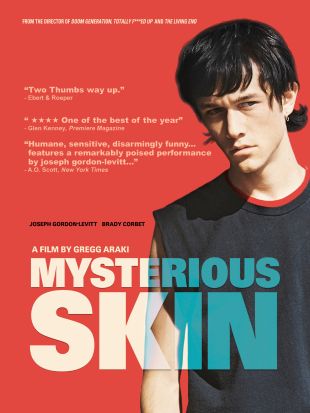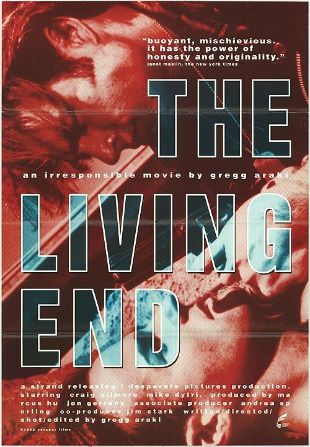One of the angriest, most unconventional, and relentlessly intriguing voices in independent cinema, filmmaker Gregg Araki emerged on the film scene with the subtlety of a gunshot to the head with The Living End in 1992. His story of two HIV-positive gay lovers on a highway rampage quickly established him as one of the key figures in the "New Queer Cinema." The film reached out to many of society's more alienated members--gay and straight--who related to its energetic rage and identified with the anger of its principle characters.
Of Asian-American heritage, Araki is a native of Southern California. After attending film school at the University of Southern California--where he was particularly influenced by screwball comedies such as Bringing Up Baby-- he made his directorial debut in 1987 with Three Bewildered People in the Night. With a budget of only $5,000 and using a stationary camera, he told the story of a romance between a video artist, her lover and her homosexual friend. Two years later, Araki made a name for himself on the festival circuit with Long Weekend (o' Despair). Produced, directed, written, photographed and edited by Araki (for his own whimsically named Desperate Pictures Company), this very small-scale Big Chill derivation involved a group of recent college graduates brooding over their futures during one woozy, boozy evening. Araki followed this modest effort with the aforementioned The Living End (1992), which was shown in competition at Sundance.
Araki's next film, Totally F***ed Up (1993), was one close to his heart. Filled with rage and decidedly anti-gay cinema sentiments, it chronicled the messed-up lives of six gay adolescents who have formed a family unit and are struggling to get along with each other and with life in the face of various major obstacles. Araki himself classified it as "A rag-tag story of the fag-and-dyke teen underground....A kinda cross between avant-garde experimental cinema and a queer John Hughes flick." Whereas this film was subversive in its exploration of the youths' depression and negative attitudes toward homosexuality, Araki's fifth film, The Doom Generation, was an all-out darkly comic assault on gay and straight audiences that brimmed with graphic violence, sledgehammer symbolism and relentless eroticism. While largely trashed by more conservative critics, the piece won a measure of respect in a number of circles.
Both Totally F***ed Up and The Doom Generation are part of Araki's so-called "teen apocalypse trilogy;" the final entry, Nowhere (1997), was described by its director as "A Beverly Hills 90210 episode on acid." Centering on a group of bored, alienated Los Angeles adolescents who while away a typical day with kinky sex, drugs, and the requisite wild party, the film combined a distinct brand of nihilism with a candy-colored cheerfulness. This cheerfulness was a large feature of Araki's subsequent effort, the romantic comedy Splendor. The story of a girl (Kathleen Robertson) who cannot choose between two boys (Johnathon Schaech and Matt Keeslar) and so decides to live with them both, Splendor was Araki's homage to his beloved screwball comedies. Hailed as the director's most optimistic film to date, it had its premiere at the 1999 Sundance Festival.


